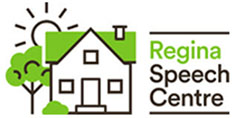Reading is NOT a natural skill, it is a learned skill. There are many things that can make it more difficult to learn to read as reading is an extremely complicated process that takes place in the brain. It requires systematic and explicit instruction to acquire and sometimes there are many factors that can contribute to poor or slow acquisition of skills. As Louisa Moats says, “teaching reading is rocket science”. The more I learn in this area, the more I agree! The science in this area has come a long way and we have learned so much about how reading really happens in the brain, which means we know a lot about how to fix it when it is not going right, and we know a lot about teaching reading the right way.
Many children with good oral language experience, average to above average intelligence, and frequent early interactions with literacy activities also have difficulties learning to read. Why? This is where assessment comes in. In order to address reading we need good, robust and thorough evaluations of a child’s skills. Without the assessment how do we know what is going wrong, so how do we know what to target? It would be like going to the doctor’s office and receiving a prescription without the doctor ever asking a question or doing an examination. That would never happen. If reading is going wrong we shouldn’t just begin an intervention without first ascertaining why.
Generally, good readers are: phonemically aware, understand the alphabetic principle, apply these skills in a rapid and fluent manner, possess strong vocabularies and syntactical and grammatical skills, map and learn words automatically and quickly, and relate reading to their own experiences. If there are deficits in any of these underlying areas it can make acquiring reading more difficult. Especially if the instruction has not been systematic. Often the general assessments done in the classroom don’t look at all of the underlying areas and are focused just on telling us the child’s level, not what areas might need strengthening. So if you have concerns about your child’s reading first consider a good reading assessment from a knowledgeable professional, you won’t regret it.
Our team of therapists and educators at Regina Speech Centre are committed to really understand reading, how it is acquired and taught, and spend hours keeping up with the new research. We believe in sharing our knowledge with families and educators to build better reading instruction in our community from the ground up! We can’t wait to share our knowledge with you whether that’s through an assessment, therapy, tutoring or workshops. Let’s support our learners together.

